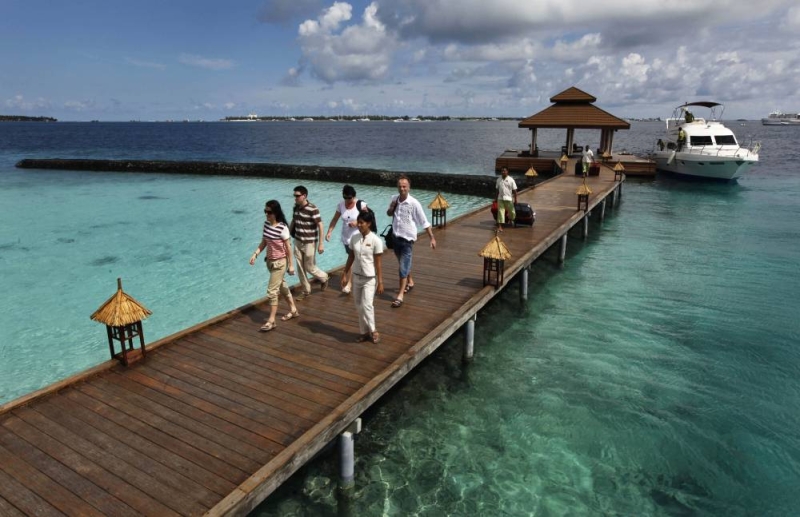Sino-Japan row to mar Bandung meet
Sino-Japan row to mar Bandung meet
Published: 12:00 am Apr 19, 2005
Agence France Presse
Beijing, April 19:
A possible crunch meeting between the leaders of China and Japan threatens to overshadow the Asian-African summit this week, which is supposed to be about peace and good neighbourly relations. When the Bandung conference was last held 50 years ago, Asian and African nations came away pledging tolerance and peace. Half a century on, the commitments
to these values will be put to a severe test with China-Japan ties are at their worst since diplomatic relations were established in 1972. While Japanese Prime Minister Junichiro Koizumi has indicated he wants talks with Chinese President Hu Jintao at the meeting in Indonesia, China has yet to commit. Despite ties hitting rock bottom, analysts said Hu and Koizumi, mindful of domestic sensitivities, are unlikely to engage in in-depth talks at the conference. “It is abundantly clear that both sides recognise the situation is deteriorating and the current trend cannot continue,” said Brad Glosserman, director of research at the Pacific Forum in Honolulu. “What is required is for both governments to say this situation is untenable, we need to fix it, what can we do... but I don’t see either government making that step,” he said.
Both sides continue to take a hard line, still insisting that the other take concrete measures to move relations forward. Shi Yinhong, political scientist at the People’s University in Beijing, said even if the two leaders were to meet, few concrete results could be expected. “I can’t see any breakthrough imminently under the circumstances. China is taking a tough stance and so is Japan,” he said. “Even if Hu and Koizumi are going to meet, what sort of results can be yielded? If there is to be no result at all, then no one would say the meeting was worthwhile. The situation is quite bad indeed.”
No compensation
TOKYO: A court rejected demands to compensate Chinese victims of atrocities committed by Japan’s military in the 1930s and 40s, including the alleged use of biological weapons and the infamous Rape of Nanjing. The Tokyo High Court upheld a 1999 lower court ruling that international law barred foreign citizens from seeking damages from the Japanese government for wartime actions. — AP
MPs to visit shrine
BEIJING: Japanese MPs said on Tuesday they plan to visit a war shrine that critics say glorifies
the country’s militarist past in a move that seemed certain to inflame tense relations with China. The lawmakers make three visits a year to the Yasukuni Shrine in Tokyo, and will pay their respects to Japan’s war dead on Friday despite escalating tensions with China, an aide to lawmaker Yasu Kano said. — AP




